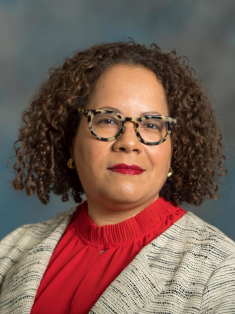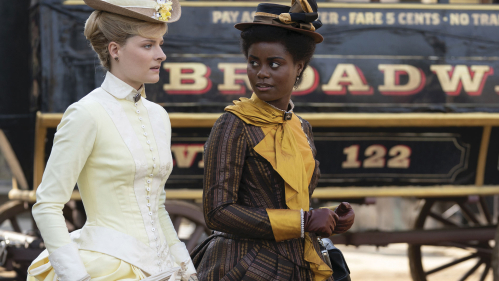Erica Armstrong Dunbar, a Rutgers University–New Brunswick history professor, is the co-executive producer of HBO’s The Gilded Age and a guest historian in Ken Burns’s PBS documentary about Benjamin Franklin.
HBO’s The Gilded Age, based on the late 19th-century battle between Manhattan’s old-money elite and new-money tycoons, showcases the opulence of the wealthiest New Yorkers. But Rutgers University–New Brunswick historian and series co-executive producer Erica Armstrong Dunbar made sure that the series, which is in production for a second season, includes authentic characters of color who too often have been reduced to stereotypes or overlooked in media portrayals of American history. “The parallel story in Black America is that there is a Black elite: a Black middle-class community that has managed—one, two, or three generations removed from slavery—to amass status and wealth,” says Dunbar, the Charles and Mary Beard Distinguished Professor of History at the School of Arts and Sciences. “The fragility of that status and wealth is palpable, and that narrative has to be referenced in one way or another if we are going to talk about wealth, progression, and oppression in New York at that time.”

More networks and studios are beginning to understand that a diversity of voices—among writers, producers, and directors—is important. Scholars such as Dunbar can collaborate with the television industry to help create engaging storytelling, especially for period pieces that address difficult topics. In 2018, Dunbar and several historians launched History Studio, which partners consultants with projects in film, television, and publishing that require factual authenticity. Once filming for The Gilded Age resumed after production delays because of the pandemic, Dunbar was named co-executive producer. “The most important moments for me were seeing the interior spaces of Black life represented. What were the conversations these people were having about life, about love, about death, about progress, about oppression?” says Dunbar, who was also one of the prominent historians appearing in Ken Burns’s PBS documentary about Benjamin Franklin. “There are glimpses of these spaces that mean so much to me as a person who worked on the show but also as a historian who has dedicated my life to exactly this kind of representation.”
